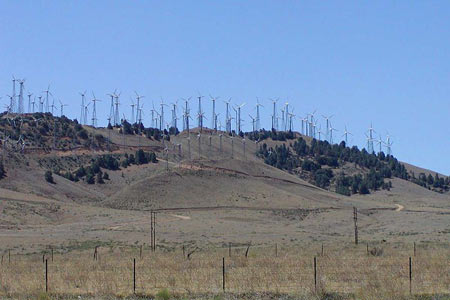 On Energy, Do Americans Protest Too Much?Aug. 15, 2011 - Scott Bittle and Jean Johnson - greatenergychallengeblog.com
For a highly technical drilling technique, the controversy over “fracking” for natural gas has gained a lot of traction. In the past week, a federal advisory panel called for tighter restrictions and disclosure on the process. Meanwhile, House Democrats are pushing for tighter rules on companies using the process to drill for natural gas, and environmental groups, backed by celebrities like Mark Ruffalo and Ethan Hawke, are trying to rally New Yorkers “to protect New York tap water from fracking.” Some groups have called on New York’s Governor Cuomo to ban the process in the state. We’re not flacking for fracking here. There are good reasons to be careful, and frankly even if you’re in favor of it, you should regret the federal government’s 2005 decision to exempt the process from safe drinking water rules. That just made people more suspicious. The whole issue deserves a good, thorough vetting by disinterested scientists and engineers who can evaluate the risks and give the public a fair-minded report on how serious they are. But the anti-fracking fervor does raise a broader question: Are Americans are ready to take accept any trade-offs at all when it comes to energy? If the fracking controversy were the only energy uproar around, we wouldn’t be concerned, but in fact, you can find Americans protesting virtually every viable energy alternative out there. Consider: • Wind power. Opposition
has been strong against expansion of wind farms
in California,
based on land-use concerns and the nuisance value
of turbines, to the point where Gov.
Jerry Brown has vowed to “crush” opponents. Maybe
he will, but the fact that there are enough people
out there against these plans to require “crushing” should
give us pause. And those are just the recent examples. As a nation, we’ve said no to a cap-and-trade plan. We’ve said no to offshore drilling. And while we’ve said “yes” to an upgraded energy grid, the money we’ve put behind it just isn’t enough to do the job. In each case, of course, there’s a legitimate and reasonable debate to be had. Fracking has to be done safely, if we’re going to do it at all, since water is not normally supposed to be flammable. Wind farms aren’t pleasant neighbors. And it would be foolish not to re-evaluate nuclear power in light of Fukushima. But if we add up all these “no” answers, the total comes to …well, nothing. If we keep on going like this, we’ll rule out nearly every option or idea for diversifying our energy supply. That will leave us right where we are today—massively dependent on fossil fuels that contribute to global warming and that are almost bound to grow more expensive as worldwide demand for them continues to increase. There’s an old adage in the book publishing business that no one ever gets fired for saying “no,” and any writer who has ever gotten a rejection letter can always take a little comfort reading what some ever-so-smart editors had to say about Lord of the Flies (“an absurd and uninteresting fantasy which was rubbish and dull”) and The Wind in the Willows (“an irresponsible holiday story”). There are risks to be being too quick to say no too. Sometimes, you reject something that has enormous potential given enough time. Sometimes you just back yourself into a corner where you’re not able to get out. If you doubt that, just flip our concern about “no” around for a moment. Can you think of a new energy idea that’s an undisputed “yes?” And if it is, are we actually doing it? Stopping a bad idea is important. But if you’re already living with a bad idea, one that’s likely to keep getting worse as time goes on, then what you really need is to get people to agree to try something else. On energy, anything we choose will have a downside. The question is whether it’s a downside we can live with, because we won’t be able to live with the status quo – at least not forever. Related posts:
|
Email this page to a friend
If you speak another language fluently and you liked this page, make
a contribution by translating
it! For additional translations check out FreeTranslation.com
(Voor vertaling van Engels tot Nederlands)
(For oversettelse fra Engelsk til Norsk)
(Для дополнительных
переводов проверяют
FreeTranslation.com )


